OBJECTIVE
COMMUNICATION
OBJECTIVE
COMMUNICATION
Writing, Speaking, and Arguing
LEONARD PEIKOFF
Edited by Barry Wood

New American Library
Published by the Penguin Group
Penguin Group (USA) Inc., 375 Hudson Street,
New York, New York 10014, USA

USA | Canada | UK | Ireland | Australia | New Zealand | India | South Africa | China
Penguin Books Ltd., Registered Offices: 80 Strand, London WC2R 0RL, England
For more information about the Penguin Group visit penguin.com.
First published by New American Library,
a division of Penguin Group (USA) Inc.
First Printing, September 2013
Copyright Leonard Peikoff, 2013
All rights reserved. No part of this book may be reproduced, scanned, or distributed in any printed or electronic form without permission. Please do not participate in or encourage piracy of copyrighted materials in violation of the authors rights. Purchase only authorized editions.
 REGISTERED TRADEMARKMARCA REGISTRADA
REGISTERED TRADEMARKMARCA REGISTRADA
LIBRARY OF CONGRESS CATALOGING-IN-PUBLICATION DATA:
Peikoff, Leonard.
Objective communication/Leonard Peikoff; edited by Barry Wood.
p. cm.
ISBN: 978-1-101-60998-9
1. PhilosophyAuthorship. 2. Objectivism (Philosophy) 3. Rand, Ayn. I. Wood, Barry, 1940 editor of compilation.
II. Title.
B52.7.P45 2013
149dc23 2013008208
Designed by Elke Sigal
PUBLISHERS NOTE
While the author has made every effort to provide accurate telephone numbers, Internet addresses and other contact information at the time of publication, neither the publisher nor the author assumes any responsibility for errors, or for changes that occur after publication. Further, publisher does not have any control over and does not assume any responsibility for author or third-party Web sites or their content.

EDITORS PREFACE
OBJECTIVE COMMUNICATION IS a course on how to present ideas clearly and effectively, whether in writing, speaking, or argument. Leonard Peikoff describes it in his opening remarks as the application of Objectivist philosophic principles to the problem of achieving clear thought and communication about ideas. The material in this book was originally presented as a series of lectures in New York City in early 1980. For many years these lectures were available on tape or CD for interested listeners, and they are still used in the curriculum of the Objectivist Academic Center at the Ayn Rand Institute. A full transcript of the original lectures may be found in the Ayn Rand Archives, a special collection of the Ayn Rand Institute.
A word on the course content is in order. Objective Communication was not intended as a formal or methodical treatment of its subject; nor was it an attempt at original or substantial philosophic insight. Rather, it was offered as a series of informal, albeit philosophically based, observations and guidelines for students to grasp and put into practice. Thus, in addition to the lectures proper, Dr. Peikoff provided samples of writing, including writing by Ayn Rand, for the audience to analyze. He also invited volunteers to submit for critique a brief essay, oral presentation, or unscripted argument on a given topic. Finally, each lecture was followed by an extensive and wide-ranging question-and-answer period. The course thus involved a great deal of audience participation, which is reflected in the organization and contents of this book. For works offering systematic conceptual precision, coupled with integration on a broad scale, readers are referred to Dr. Peikoffs books The Ominous Parallels, Objectivism: The Philosophy of Ayn Rand, and The DIM Hypothesis.
In editing these lectures for publication, I have made a number of changes. I have rearranged the lecture material slightly in order to create a more orderly structure. I have eliminated repetition and colloquialisms and touched up grammar where needed. In merging the question-and-answer sessions into the text, I have eliminated some exchanges that I deemed irrelevant (however interesting), and moved others to where I thought they would be more appropriate. All punctuation is my own, as are paragraph breaks and subsection titles. Material prepared for the course by students is either integrated into the text or reproduced in the appendices.
I would like to express my profound gratitude to Leonard Peikoff for the opportunity to turn these lectures into a book. But I must also stress that while I feel confident that I have accurately rendered the original, oral material into written form, Dr. Peikoff has neither reviewed nor approved the content of this book.
Barry Wood
FROM LEONARD PEIKOFF
PEOPLE HAVE OFTEN asked for a written version of my oral lecture courses, on the premisewith which I agreethat written lectures are much more accessible to the student. Writing, however, is in this context virtually a different language from speaking; a raw transcript of an extemporaneous speech, however excellent, is almost always filled with defects and confusions of one sort or anotherand so is frequently boring as well. To turn a lecture course into an accurate, clear, and valuable book, a huge amount of time-consuming editing is required, a task that can be performed only by an individual with the necessary motivation, knowledge of the subject, and editorial skills. My own age and priorities make it impossible for me to undertake such a task.
I have therefore decided to authorize several individuals who possess the necessary qualifications to edit and bring out in book form certain of my courses, and to do so entirely without my participation. Although I have confidence in these editors to the extent that I know them, I have had no part in their work at any stageno guiding discussions, no reading of transcripts, not even a glance at early drafts or final copy. Even a glance might reveal errors, and I could not then evade the need to read more, which is precisely what is out of the question.
In my opinion, the lecture course in this book is of real value to those interested in the subject. But when you read it, please bear two things in mind: Barry Wood is an experienced editor and lecturerand I have no idea what he has done in this book.
Leonard Peikoff
April 10, 2012
P.S. If you happen to spot and wish to point out seeming errors in the text, please e-mail Dr. Wood at the Ayn Rand Institute, c/o mail@aynrand.org. If you like this book, I may add, do not give me too much of the credit. My course provided, let us say, the spirit, but Dr. Wood gave it the flesh required to live.
ABOUT THIS COURSE
THIS COURSE STARTED as a number of small seminars that I gave to a small group. Papers or talks were presented by individual students, and then subjected to group commentary and group criticism. What I have essentially done for this series of lectures is to organize, in a more structured way, the kinds of points that came out in those early seminars, as well as some other ones. This is the beginning of a very complex field. I am not claiming that this is a comprehensive, definitive treatise on communication. But it does teach some valuable first steps.

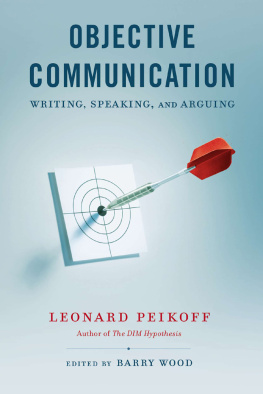

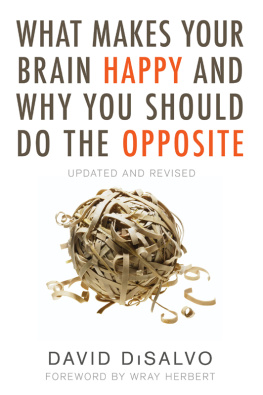





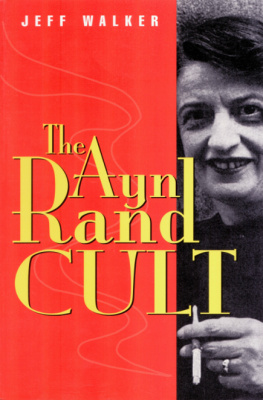
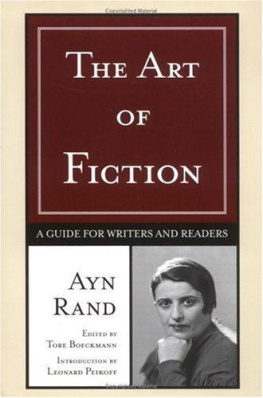
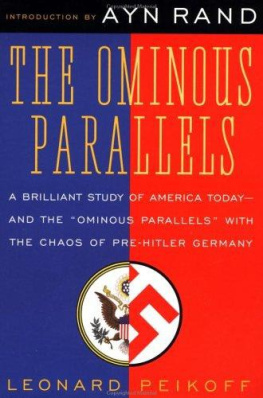
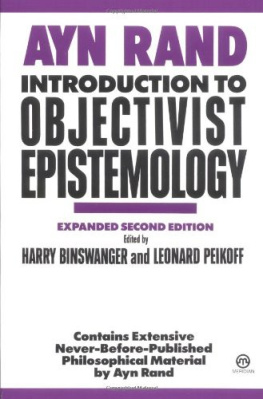






 REGISTERED TRADEMARKMARCA REGISTRADA
REGISTERED TRADEMARKMARCA REGISTRADA